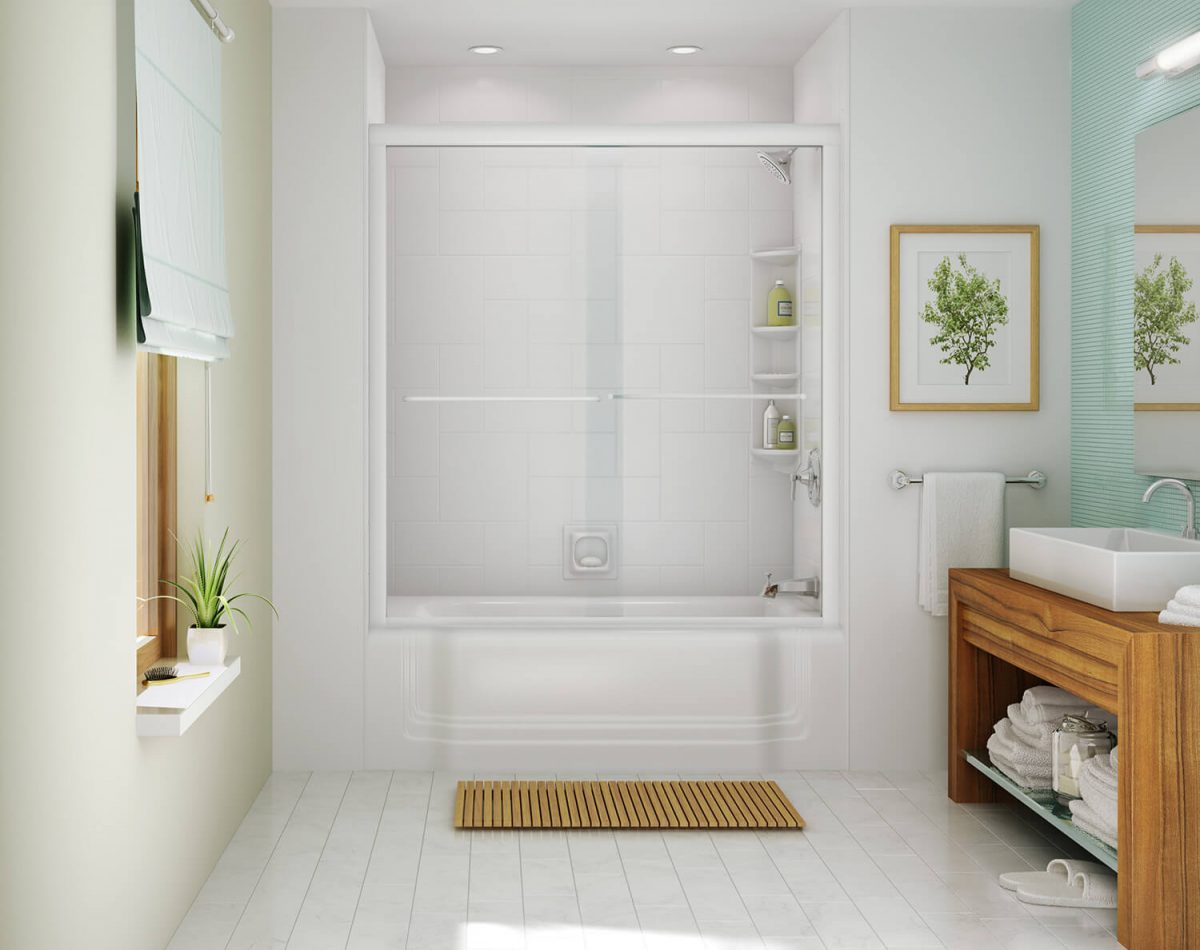Creating a feng shui home can be overwhelming. What rooms do you begin with? Do you start from scratch or redesign a space that is already decorated?
Thankfully, the process does not need to be challenging since feng shui is simple. It’s all about slowing down and observing the details in your life so you can truly live in the moment.
What Is Feng Shui?
Feng shui is more than a buzzword used by interior designers and real estate agents. It’s an ancient Chinese tradition that uses interior design principles to improve your life. The words “Feng” and “Shui” mean “wind” and “water.” Wind and water are crucial elements for life, just like feng shui.
In feng shui, the key is qi (pronounced “chi”), or universal energy. This energy fills everything around us. It is a vital force that forms part of any living thing and is the underlying principle in Chinese traditional medicine.
Feng shui has roots in early Taoism and Buddhism, but its elements are visible in every culture across time. For instance, we now know that our surroundings greatly affect our energy—like how a New York City apartment differs from a serene cabin in the woods.
To create a feng shui home, you use spatial design to harmonize your living space with nature. You arrange the pieces in a way that creates balance with the natural world. The goal is to establish harmony between you and your environment.
What are the 5 Feng Shui Elements?
All feng shui homes and buildings have five basic elements: wood, fire, earth, metal, and water. Each of these elements invokes a different mood and creates a customized space. To make your home more comfortable, you must balance the elements and not have an excess of any in particular. Feng shui elements can help you maintain control and composure over your space, both aesthetically and energetically. Let’s have a look at each.
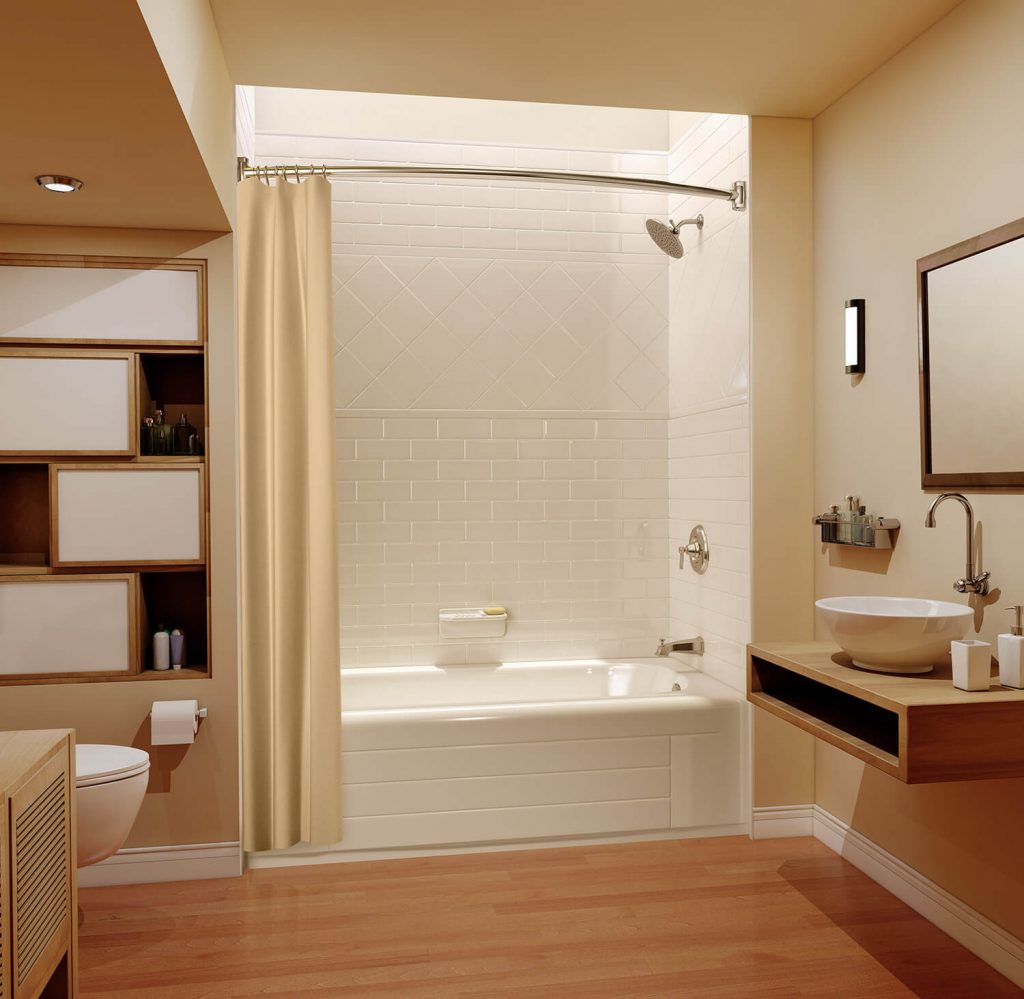
Wood
In feng shui, wood focuses on the flourishing flora of nature. It symbolizes new life, health, growth, expansion, and creativity. When incorporating the wood element, mix vertical features with soft ones—like tree trunks and flowers.
To bring this element into your feng shui home, add real plants. You can get plants that are easy to care for, like the lucky bamboo or the money plant (jade). Since wood is related to tall, columnar shapes, you can also hang long window curtains—blue or green ones—to add the element to your space.
However, avoid too much wood since it can make you feel rigid, stubborn, and overwhelmed. On the other hand, too little can show a lack of creativity, stagnancy, and uncertainty. Balance is key.
Fire
Fire is a powerful element for creating a feng shui home. It’s connected to passion, action, and fame. It can enhance your leadership skills and help you attract clients, and improve your social life. Fire encourages expressiveness, boldness, and inspiration.
Lighting expands the fire element, so add fire energy by incorporating bright lighting fixtures and candles. Try adding candles to your bedroom and your dining room table. You can also open windows to let in the sun and add red, pink, or purple shapes.
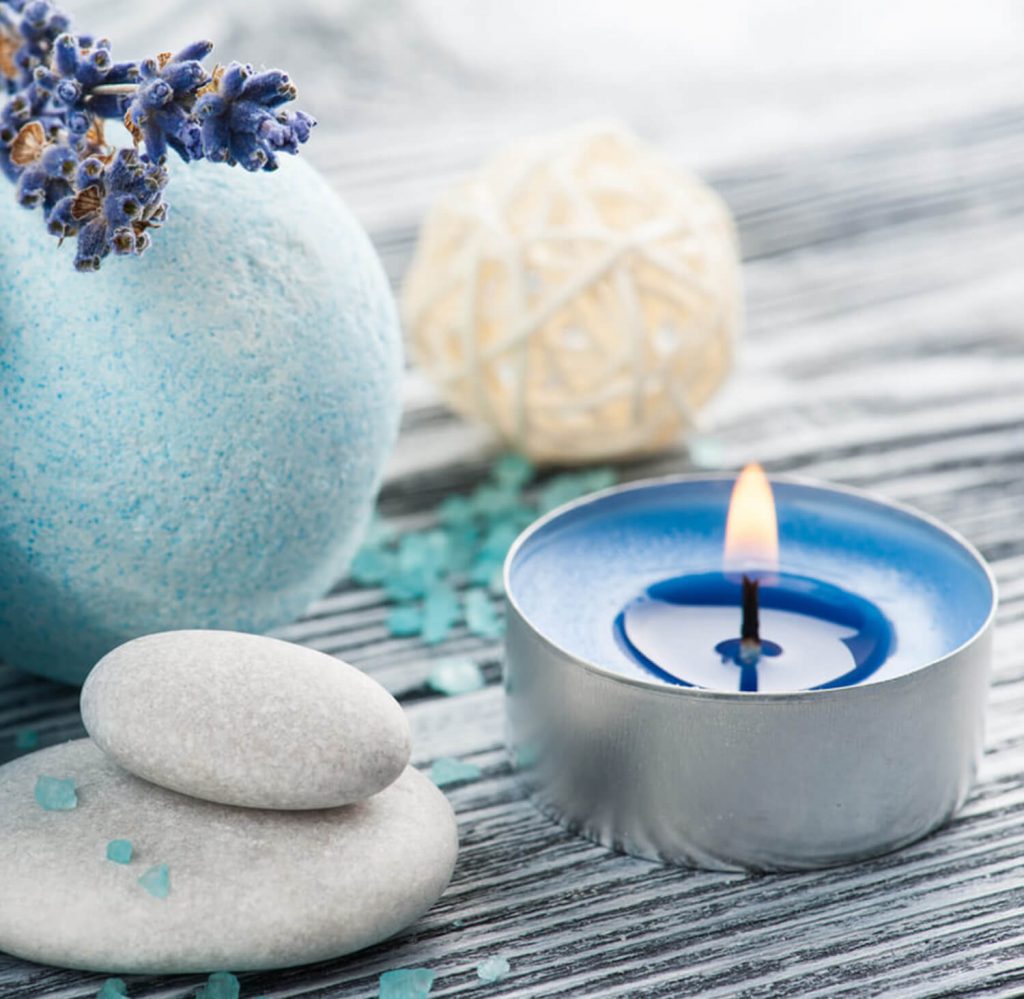
Be sure you’re not surrounded by too much fire, or you may feel angry, aggressive, and irritable. You may also act impulsively. If there’s too little fire energy, you may be emotionally cold, have a dip in self-esteem, lack vision, and be inexpressive.
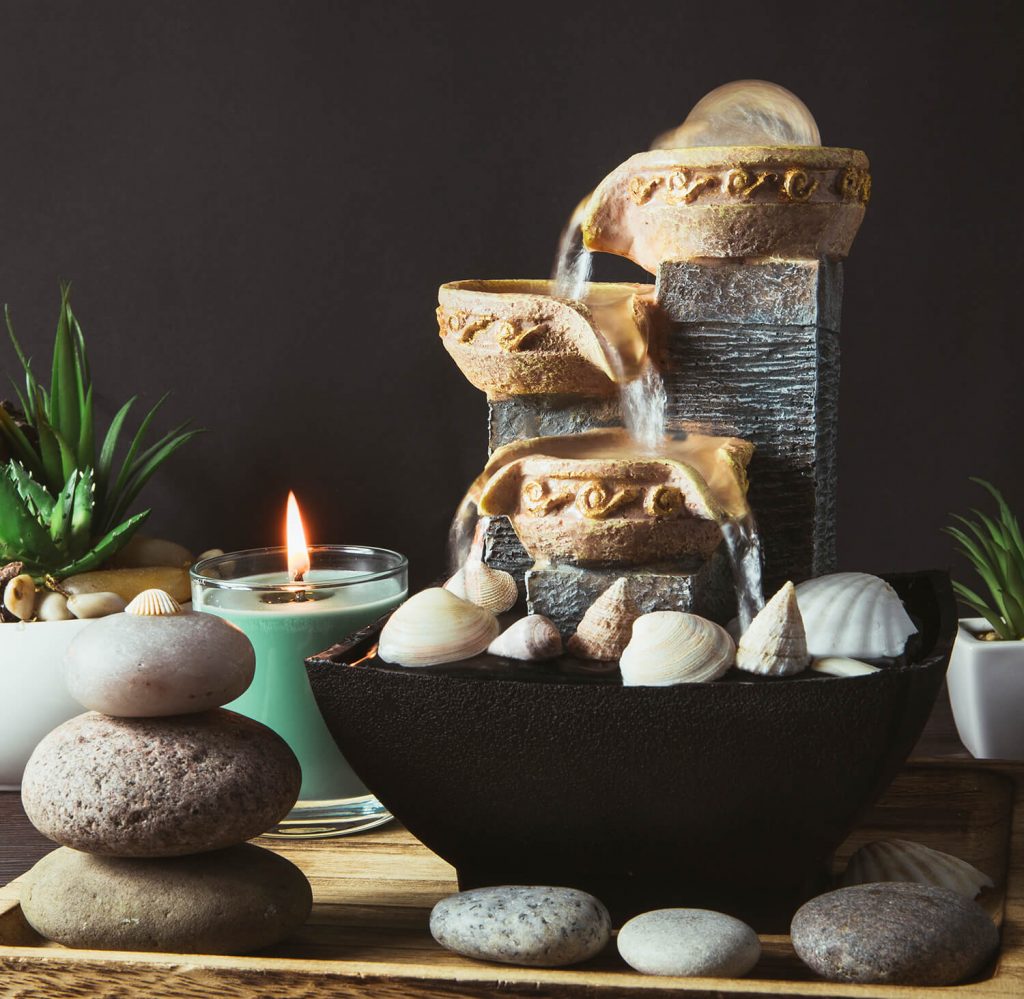
Earth
The earth element is connected to security and stability in relationships and business. It affects your physical strength, order and keeps you safe and grounded. Bring earth tones into your home with natural crystals and stones. Fill a bowl with rock crystals or crystal clusters and place it on your coffee table. You can also use feng shui colors like creams and browns.
Refrain from using too many earth pieces in your space, or you may experience boredom, sluggishness, and seriousness. If the pieces are too few, you may feel unfocused, chaotic, and disorganized.
Metal
The metal feng shui element represents precision, clarity, and simplicity. It affects your mental clarity, logic, health, wealth, and love. This element reflects characteristics like focus, organization, joy, and integrity when used in a home.
You can add wind chimes, bells, mirrors, lighting fixtures, metallic furniture, cushions, or artwork to bring these qualities into your life. Use brassy tones and softer shades. Try incorporating metallic finishes and round shapes.
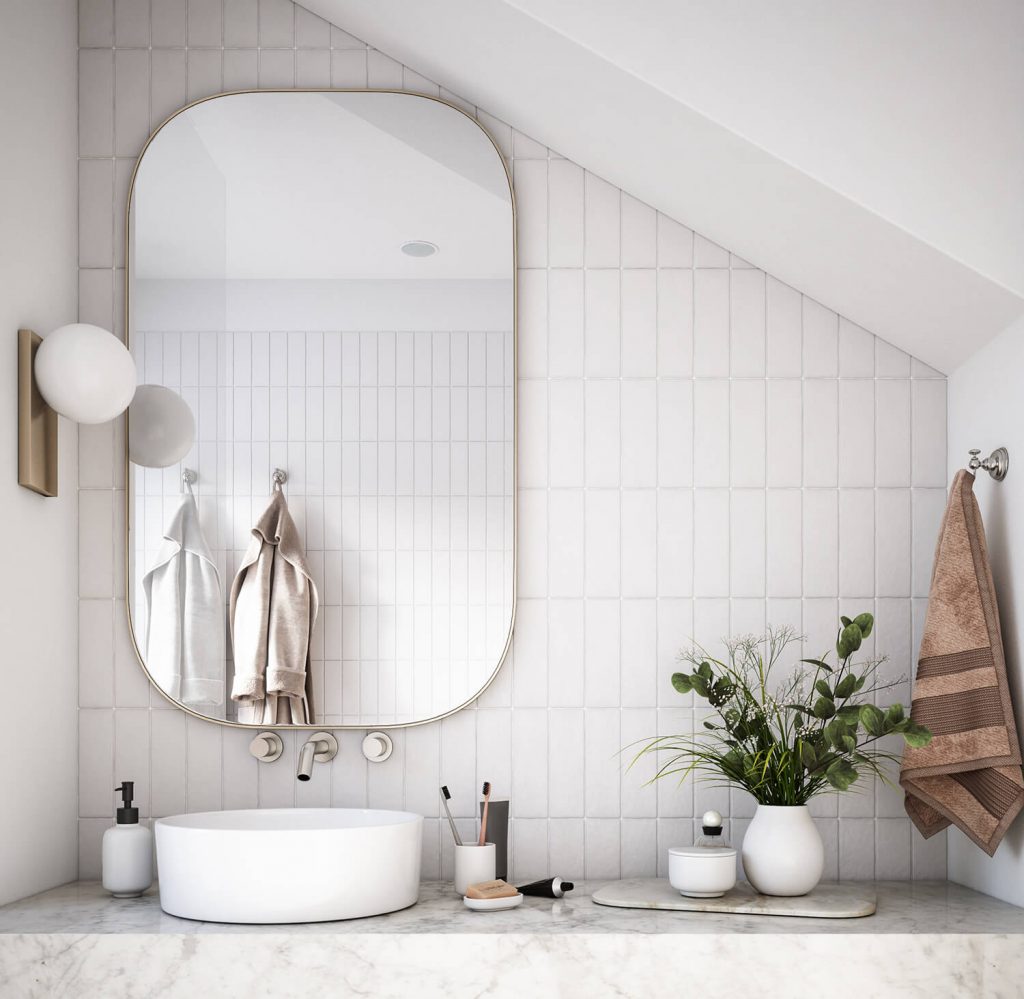
Overusing this element will make you seem overly critical, chatty, and given to speaking without thinking. Too little, and you may appear quiet, cautious, and without focus.
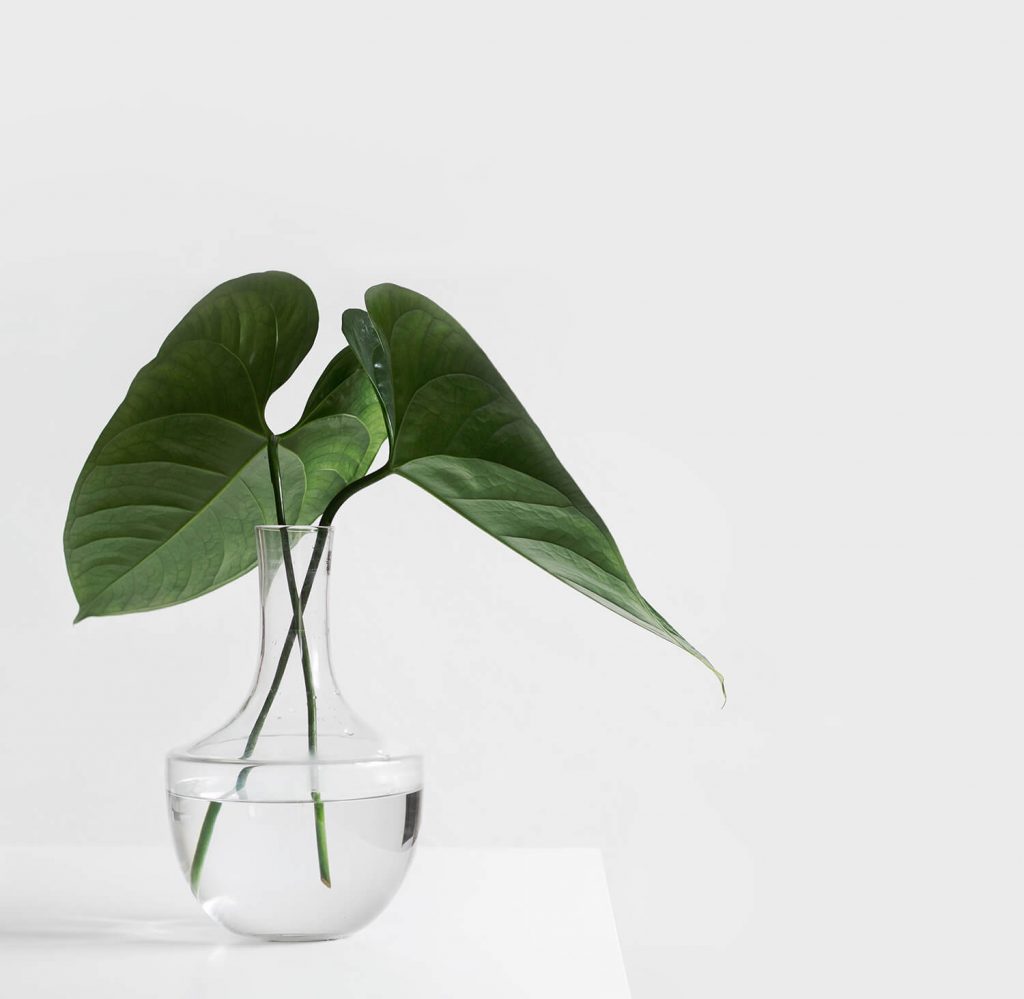
Water
Water is associated with purification, cleansing, the flow of emotions, movement, abundance, and prosperity. A feng shui home with a balance of water is full of inspiration, wisdom, and insightfulness. To add the water element to your home, use a water feature. You can also use touches of blue, curved items and soothing images of water.
Black throw pillows, furnishings, art, and vases can also expand the water element in your home. Usually, water is linked to black in feng shui.
Navy blue and deep charcoal gray hues are also recommended. Color offers an easy way to add a feng shui element to your decor. If the water features are few, you may feel stressed, lonely, and experience a lack of sympathy. Too much might make you feel like you’re drowning emotionally.
Now that we’ve looked at the five feng shui elements, let’s see how you can use feng shui rules to create a welcoming home.
Feng Shui Living Room Rules for a Cozy Space
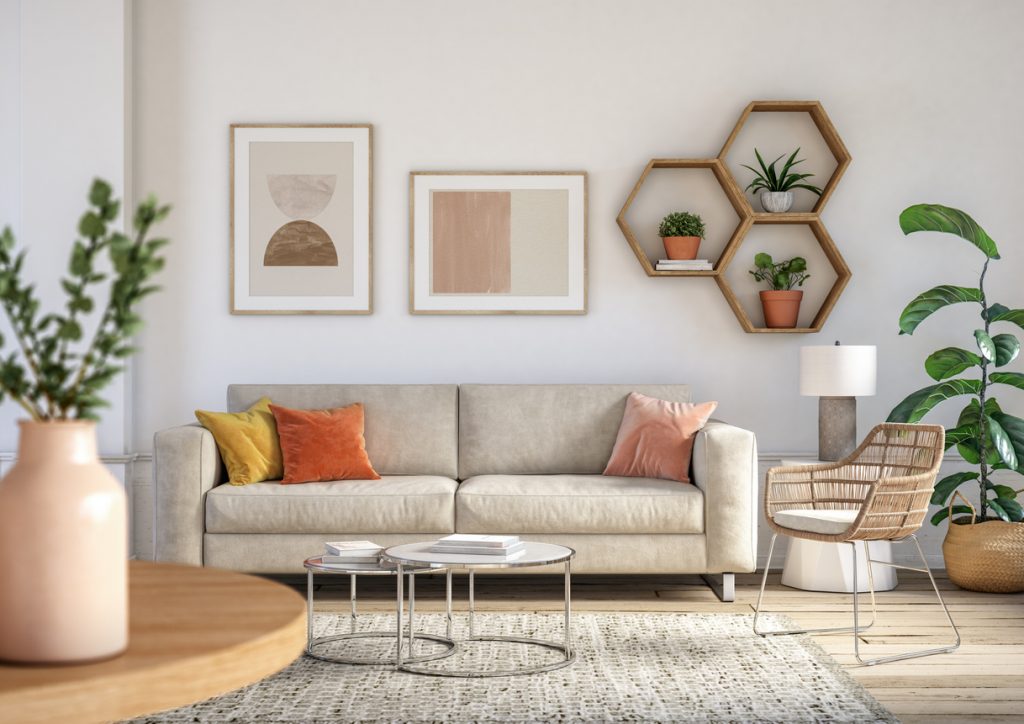
Your living room should be warm and welcoming. It’s where you relax and entertain. Here are three simple rules for creating good feng shui in your living room.
- 1
Use the Right Living Room Feng Shui Colors
In feng shui, color enhances or supports particular areas of your life. You can bring color into the living room using furniture, art, paint, or other accessories. The best feng shui colors for a living room are blues and greens, which symbolize energy, growth, and new beginnings. It is also recommended to use earthy browns, yellows, neutrals, and whites.
- 2
Add Green Living Room Feng Shui Plants
Living plants bring life energy into your home. They immediately add positive energy to your living room. Ensure your plants get enough light, water, space, and love. The best feng shui plants for the living room include succulents, aloe, orchids, snakes, and peace lily.
- 3
Decorate with Living Room Feng Shui Crystals
For good feng shui, place your crystal cluster in the center, the northwest, the west, the northeast, or the southwest part of the room. Avoid placing it in the North Bagua area, which represents your career or path in life, unless it’s tiny. Crystals add earth feng shui energy to a space, so they should be placed in these areas that aren’t governed by the earth element.
Feng Shui Kitchen Rules for an Efficient Kitchen
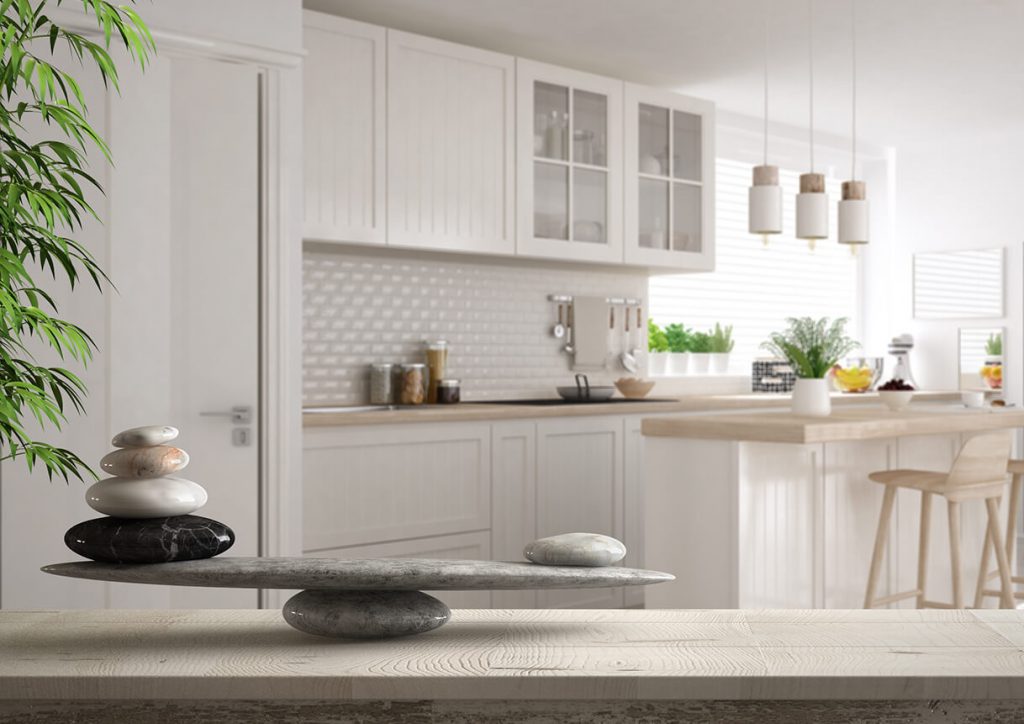
Your kitchen dictates your health and well-being because it’s where you nourish yourself. Its location, design, and accessories play an important role in creating good feng shui. Here’s how to create a feng shui kitchen.
- 1
Use Vibrant Kitchen Feng Shui Colors
The easiest way to shift the feng shui energy in your kitchen is by using feng shui colors. Add color with new tiles, cabinets, countertops, or flooring. If you can’t afford big changes, create a significant color shift with kitchen appliances, lively art, or small decor items. Use brown and green generously while using black, blue, and beige sparingly.
- 2
Place Kitchen Feng Shui Plants Strategically
Plants and flowers can attract good qi energy to this important area of your home. You can place herbs on the windowsill or hang plants. A hanging plant can balance clashing feng shui kitchen elements, like an oven and a sink.
- 3
Put Kitchen Feng Shui Crystals in the Fridge
Crystals add powerful energy to an area. Some of the most common crystals for kitchens are apophyllite and clear quartz. Put the crystals in the refrigerator to enhance the nourishment your food provides. The crystals also fill your fridge with bright, positive qi.
Feng Shui Home Office Rules for Productivity
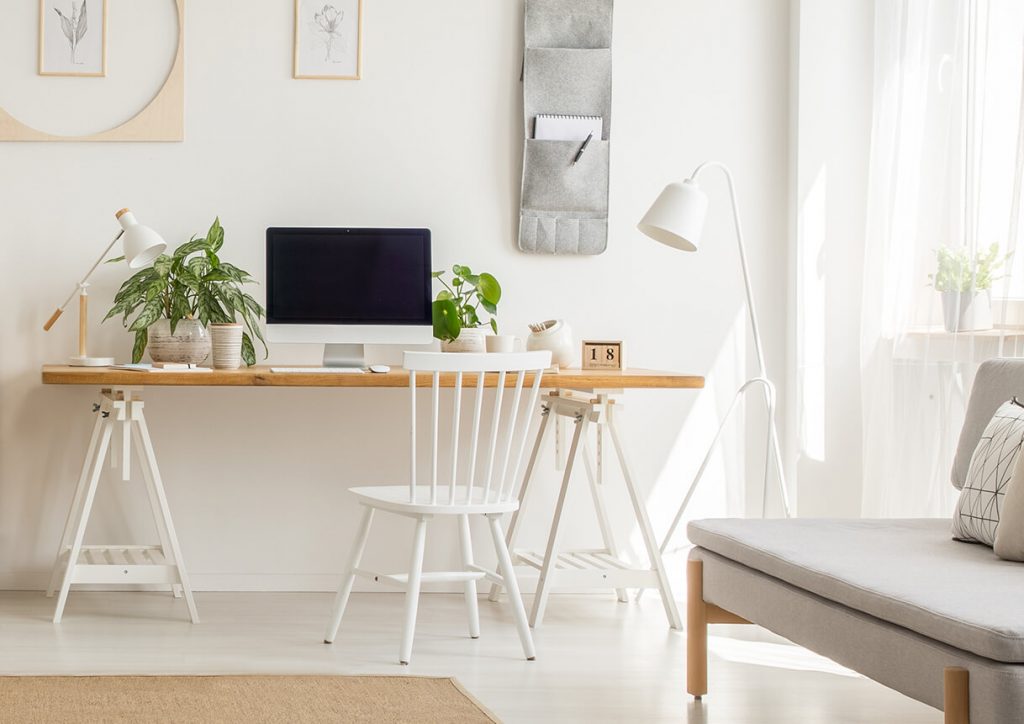
Feng shui can increase your productivity and make working from home enjoyable. Apply these three feng shui rules to make your home office an environment conducive to work.
- 1
Use Inspiring Home Office Feng Shui Colors
Whites and pastels help stimulate creativity and symbolize mental focus. Mix them with green, black, blue, or purple. Green represents growth, black represents money, blue represents clarity, and purple stands for wealth. But if you feel stressed, go with earth tones.
- 2
Incorporate Nourishing Home Office Feng Shui Plants
Plants not only improve the aesthetics of a space, but they also invite the energy of nature into your home office. They can also be nourishing and healing for your personal energy. You can add money plants like jade and bonsai trees, air-purifying plants like Boston fern or areca palm, plus protective plants like mother-in-law’s tongue.
- 3
Add Home Office Feng Shui Crystals to Re-energize
Crystals are widely used in feng shui for the vibrations they bring. Citrine helps attract wealth and abundance, while hematite and black tourmaline have strong, protective energies. Clear quartz is curative and works with all chakras. It is highly beneficial, especially in hectic working environments.
Feng Shui Bedroom Rules for Better Sleep
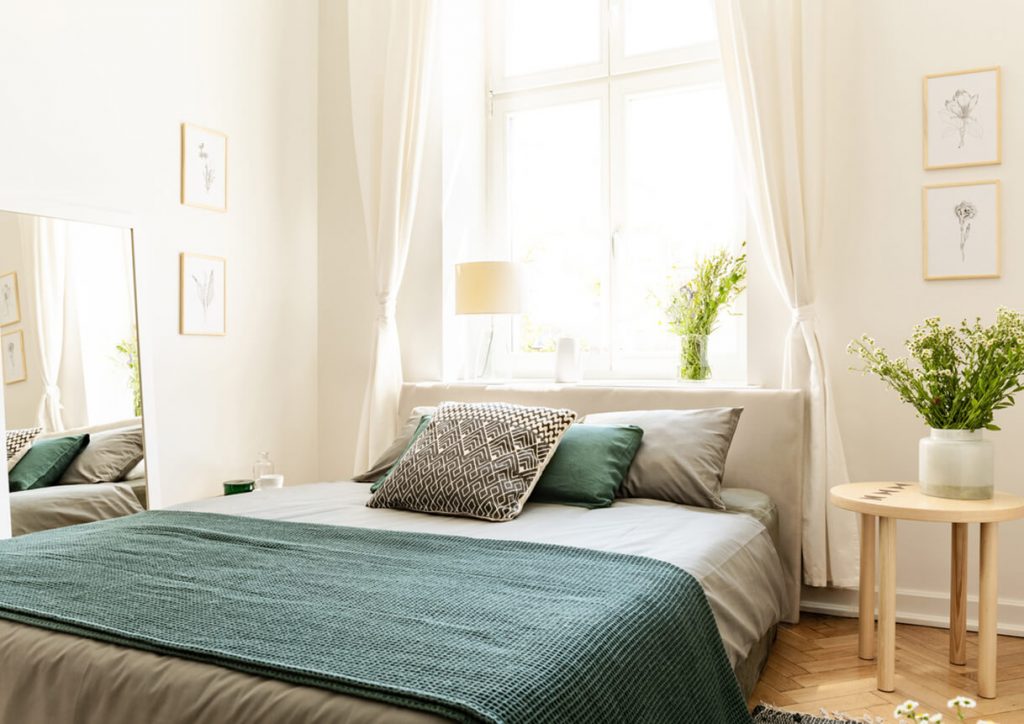
You spend more than eight hours a day in your bedroom, so try to use its feng shui to its fullest potential. The bedroom should be a place of rest and relaxation. Here’s everything you need to know about bedroom feng shui colors, plants, and crystals.
- 1
Let Your Needs Dictate the Feng Shui Bedroom Colors
The feng shui colors for your bedroom will significantly depend on your needs. If you want more passion, add some splashes of red. To make the room more relaxing, use earthy and neutral colors. For healing and vitality, use greens and blues.
- 2
Pick the Right Bedroom Feng Shui Plants
A small or medium-sized plant can enhance your sleep and air quality. Get a spider plant, a peace lily, or a Boston fern. Place the plant in the corner of the room. If your bedroom is spacious, you can get a large plant like the areca palm. Living plants add wood energy. Wood is healing and cultivates kindness and flexibility.
- 3
Boost Positive Energy with Bedroom Feng Shui Crystals
The best crystals for the bedroom are amethyst, selenite, and rose quartz. Place the selenite on the windowsill or under the bed. The cleansing stone will rid the room of any negative energy while elevating the positive energy. Rose quartz is the stone of love. Amethyst, the stone of peace, produces soothing dreams.
Feng Shui Bathroom Rules for a Spa-Like Environment
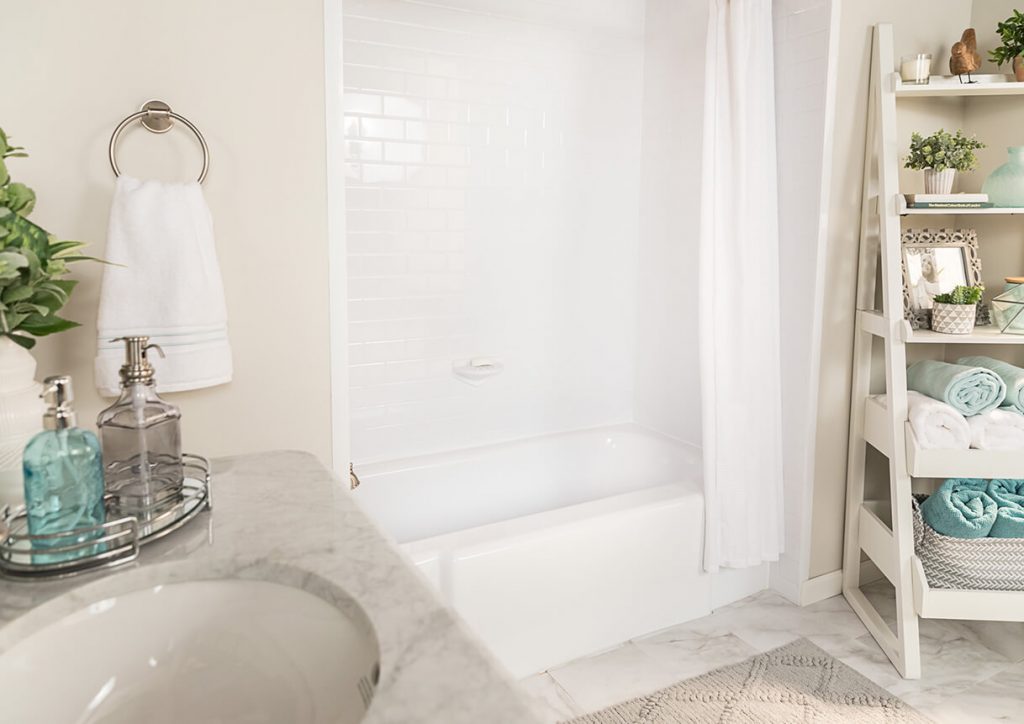
It can be hard to direct and harness positive qi in a bathroom. The drains are great at flushing away bad energy, but the overabundance of water means you risk flushing away good energy, too. Thankfully, these bathroom rules can help you counter any downward flow.
- 1
Use Light Bathroom Feng Shui Colors
Pleasant pastels and light colors are good choices for a feng shui bathroom. Use neutral and warm colors like sand and beige to create a comfortable and relaxed environment. Limit the watercolors—blue and black—as they bring in water energy. For purity and cleanliness, include touches of white.
- 2
Choose the Right Bathroom Feng Shui Plants
When choosing bathroom feng shui plants, avoid those with pointed leaves because they create poison arrows. Get plants that can withstand high humidity and don’t require direct sunlight since most bathrooms don’t have large windows. The best bathroom plants include baby tears, begonias, peace lilies, lucky bamboos, and peacock plants.
- 3
Increase Vibrations with Bathroom Feng Shui Crystals
When you use crystals to balance the energies in your bathroom, it becomes a positive place. If those crystals can heal the lower chakras, they enhance the process of elimination. The best crystals for a bathroom are rose quartz, jade, amethyst, aquamarine, and clear quartz.
Create Your Feng Shui Home Today
We all long for more calm, good health, and happiness and constantly look for ways to incorporate wellness into our everyday lives. With a few adjustments, you can make your life more peaceful and nourishing. Creating a feng shui home is all about being mindful of your space.
